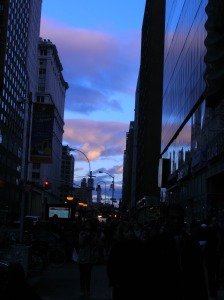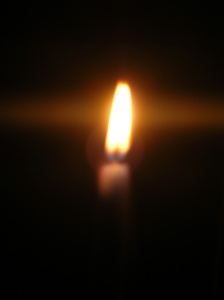
Power returns, for some
Lately, I’ve been composing more blog posts while running by the East River than here in the tangible world of type and technology. Today, I want to try to bring them back together.
This weekend I returned to the East River, Manhattan’s eastern shoreline, a tidal river, after a week’s absence. The difference between the previous Sunday, October 28th, and Saturday, November 3rd, remains difficult to convey. You can see it in pictures of Staten Island’s wreckage, in the burned out blocks of houses in Breezy Point Queens, in the battered Rockaways, in decimation, families without power, on Long Island, in New Jersey and Connecticut, in the patches of destruction and debris in downtown Manhattan. That list begins to tally, yet still says so little. It doesn’t tell us about the sand, moved in buckets or grain by grain, that sifts through our fingers, real and metaphoric.
A day before the storm, I paused by the East River, standing by my favorite spot where, at low tide, an illicit urban beach forms below the cement walkway and barricade. Maybe ten feet out are rocks and poles of old wood (the ghost of an old dock?) held by thick bands of metal, the rocks poking out from the water. At high tide, the rocks are surrounded, the beach invisible, the rocks a shrinking island. On that Sunday before Sandy hit the eastern seaboard, the jutting rocks were as diminished as I’d ever seen them, and the water lapped maybe twenty inches below where I stood. I made a point of noticing this, noting, remembering. I often think about a character in my “next novel,” Pavel, who, in a scene not yet written, perches there, cold, wet, alone, the wintry water surrounding him, the shore, its walkway, so close and yet unapproachable. Now, in real life, pre-Sandy, already the water felt momentous and ominous. A quarter-mile further down, the distance from walkway to water slightly greater, I could still imagine without difficulty how that water would surge, hitting the walkway, from there jumping the second low wall onto the FDR causeway, which it soon did.
My family was lucky. I keep feeling this; and somewhere in there, in that feeling, is the root of my disorientation. For the better part of a week, we were without electricity; cold water emerged from the taps then stopped, then started again, stopping again, re-starting…. Water! Electricity I found I could live without out, shaky as that reality felt. But water. To have water return after its absence was like finding light and hope again. But still, there were the pitch-black halls and stairwells, down ten flights in the dark, save our meager flashlight, leading two small children and their grandmother, my husband having left earlier in the morning with the other flashlight to walk to his office. The contrast in that sentence. Twenty-five blocks north, the city continued, almost as though nothing had happened. My small posse of dark stair marchers—child, child, adult, adult—walked north or northwest each day, occasionally packing ourselves onto an over-crowded bus, thus able to eat a prepared meal and find further sustenance for our dinner, by candlelight (doesn’t that sound romantic? In its own way it was, yet menace lurked, fragility ever-present). Each afternoon, we returned before dark. News came through those stolen minutes on wi-fi (generally stolen from the expiring good-will of small children, tired from our journey to the still-functioning portion of the city), or from my husband when he would return, after dark, or sometimes from my bright yellow Sony Walkman, a relic from the 1990s that, with prompting, and a perch by the eastern-most window (don’t ask me why) would tune to NPR.
 After the first full day without power, Tuesday, I stayed up late (by which I mean, here, after 10:00 p.m.), writing by candlelight—on my glowing netbook screen. The incongruity again, between pre-modernity and post-. It was peaceful, relaxing after the stresses and uncertainties of the day. That first day, I left the apartment alone, walking, walking, trying to find the loop big enough to land me in the side of the city with electricity. Near Macy’s, 34th Street and 7th Avenue, a Duane Reade drugstore had light, shelves emptying, and I suddenly wondered what I needed that would not require refrigeration, that I did not have, besides the sold out spare flashlight and working radio I most coveted. Peanuts, coffee, 9-volt batteries. Everyone in the store and on the street, whether working or waiting, appeared patient, stoic, steadfast.
After the first full day without power, Tuesday, I stayed up late (by which I mean, here, after 10:00 p.m.), writing by candlelight—on my glowing netbook screen. The incongruity again, between pre-modernity and post-. It was peaceful, relaxing after the stresses and uncertainties of the day. That first day, I left the apartment alone, walking, walking, trying to find the loop big enough to land me in the side of the city with electricity. Near Macy’s, 34th Street and 7th Avenue, a Duane Reade drugstore had light, shelves emptying, and I suddenly wondered what I needed that would not require refrigeration, that I did not have, besides the sold out spare flashlight and working radio I most coveted. Peanuts, coffee, 9-volt batteries. Everyone in the store and on the street, whether working or waiting, appeared patient, stoic, steadfast.
Afterwards, a friend mentioned memories of post-9/11, an echo I heard again a morning later on the radio, and I felt relief: others felt this too, a difference that was still there. In a day (a night) reality changed for those hit by the superstorm. Back in 2001, we felt change, most immediately, here in the city and surrounding areas, but then the nation, and the world, experienced a paradigm shift with us. Now, here around New York City, our nation’s second capital, things again feel different. Damaged, unsettled, disoriented. Millions have been immediately affected, through damaged homes, loss of electricity, loss of life. But we were (are) cut off, whereas, soon after 9/11 the world seemed to explode open. Not only in frightening ways. In the years since, with our ever-increasing hyper-connectivity, the distance between Ohio and New York and London and Moscow and Damascus…has shrunk. How strange it felt for that scope to recede to a pin-prick. Friends and family hundreds, even thousands, of miles away knew better than I did what the flooding three blocks from me looked like, how far it had spread inland, before I did.
At home, during the storm, the landline stopped functioning soon after the electricity failed. Cell phones mostly refused incoming and outgoing calls; by the second day, a text could usually be sent after several tries. But batteries drained faster, the phone seeking service, scanning, scanning, where no signal existed. We retired early, and slept longer. The boys, normally dependent on a night-light and “noise machine,” slept in the silent dark without incident. In our room, if the buzzing hum of the generator disappeared, replaced by a new kind of silence, I knew our water supply would disappear with it. The sky was dark.
When the lights returned to our building on Friday night, I could see a building from our bedroom window, recessed from the others, large, its windows still black. And that darkness hurt, like the ache of what it means to be without power, not just without electricity, but powerless and left in the dark. I keep thinking of those who are there still, even while the lights around me return, some still missing heat and hot water, and further afield still missing much more, wondering what, now, does normal look like? And what do we most need?
~ ~ ~
~ Here is a link to Occupy Sandy and to another blog (The Literary Man) with a list of resources and ways to help in the aftermath of Hurricane Sandy. (Last night, the effects of Sandy were compounded by a ‘Nor’easter,’ winter storm Athena.) ~
Be well.
~

